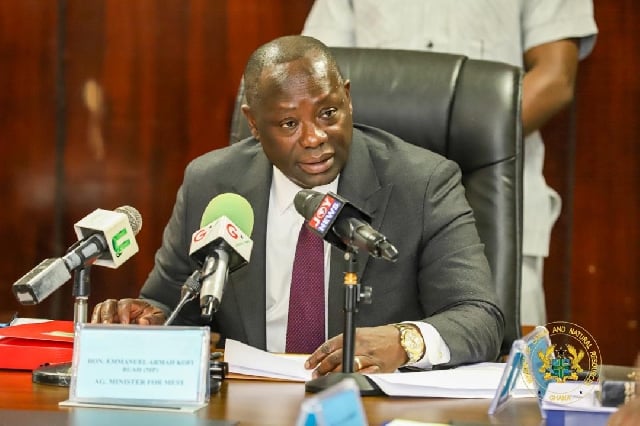The Ghanaian government, under the leadership of the Minister for Lands and Natural Resources, Emmanuel Armah-Kofi Buah, has initiated a decisive legal maneuver to combat the pervasive and destructive illegal mining activities, commonly known as “galamsey,” plaguing the nation. The Ministry of Lands and Natural Resources has formally requested the Attorney General’s Office to revoke two key legislative instruments, L.I. 2462 and its amendment, L.I. 2501, which govern aspects of mining operations. This action represents a significant escalation in the government’s efforts to curtail the environmental devastation caused by galamsey, characterized by widespread pollution of water bodies and the scarring of forest reserves.
The revocation of these legislative instruments, according to the Ministry, is not intended to create a regulatory void. Rather, it aims to streamline the existing legal framework governing mining operations, consolidating regulations under the comprehensive oversight of the Environmental Protection Agency (EPA). The EPA’s existing mandate and regulatory framework, the Ministry assures, provides a robust and adequate system to monitor and regulate all mining activities within the country, ensuring environmental protection and responsible mining practices. The Attorney General’s office has already signaled its approval of the revocation request, paving the way for swift implementation of this significant legal change.
This move is part of a larger, multifaceted strategy to address the galamsey menace and promote responsible mining within Ghana. The initiative seeks to consolidate and harmonize various mining regulations into a more efficient and cohesive system. This unified approach is expected to strengthen the government’s capacity to enforce regulations, effectively prosecute offenders, and promote best practices within the mining sector. By eliminating outdated and overlapping laws, the government aims to close loopholes that illegal miners have historically exploited, leading to a more transparent and accountable mining sector.
The revocation of L.I. 2462 and L.I. 2501 is being implemented in conjunction with other ongoing initiatives designed to tackle the complex challenges posed by galamsey. Among these are the Responsible Cooperative Mining and Skills Development Programme (rCOMSDEP), which focuses on empowering and training small-scale miners to operate within legal and environmentally sound parameters, and the National Anti-Illegal Mining Operations Secretariat (NAIMOS), which coordinates and strengthens enforcement efforts against illegal mining. These initiatives, alongside the legal reforms, represent a holistic approach to addressing the social, economic, and environmental dimensions of the galamsey problem.
The government has articulated a clear vision for this integrated strategy: the restoration of Ghana’s degraded ecosystems. The ultimate goal, as emphasized by the Ministry, is to “make our waters blue again and our forests green once more.” This reflects a commitment to reversing the environmental damage inflicted by galamsey and ensuring the long-term sustainability of Ghana’s natural resources.
The government anticipates that this proactive approach will yield several positive outcomes. By consolidating regulations and strengthening enforcement, the authorities expect to significantly reduce illegal mining activities, curb environmental degradation, and improve the overall governance of the mining sector. Furthermore, the initiatives aimed at empowering small-scale miners to operate responsibly are intended to create sustainable livelihoods within the mining sector, contributing to economic development while protecting the environment. This comprehensive approach signifies a determined effort by the Ghanaian government to effectively address the complex and deeply entrenched challenge of illegal mining, with the ultimate goal of restoring and preserving the nation’s precious natural resources for future generations.














